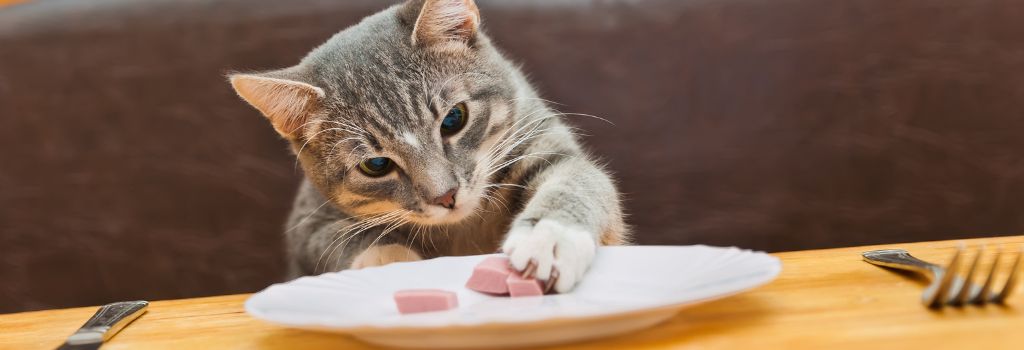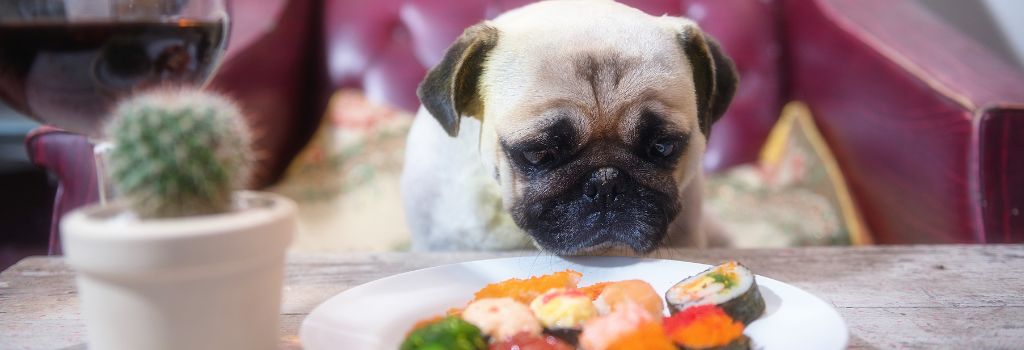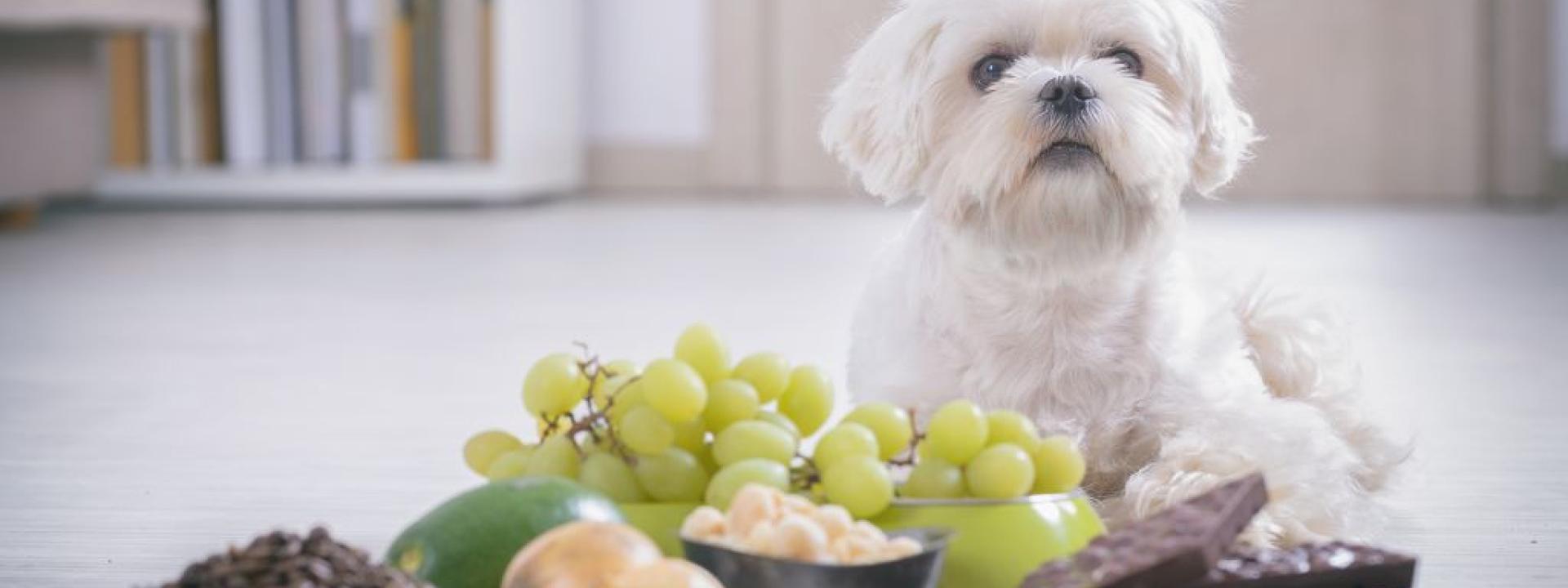Raise your hand if you've ever been under the spell of those puppy dog eyes begging for a morsel of your dinner, or the delicate paw tapping at your plate. We've all been there! While our pets might think of themselves as miniature humans deserving of every bite we take, there are certain foods that, while delicious to us, can be downright dangerous – even deadly – to our pets.
Knowledge is the most valuable tool in our pet parenting toolkit. So dive in with us as we uncover the seemingly innocent foods that might be a no-go for our pets and suggest some safe and healthy alternatives.
1. Chocolate
- Toxic to: Dogs, cats, ferrets
- Why: Chocolate contains theobromine and caffeine, harmful substances that can cause symptoms ranging from vomiting and diarrhea to rapid breathing and seizures. Dark and baking chocolate are the most dangerous due to their low sugar content and a higher percentage of cocoa.
- Alternative: Opt for specific treats designed for your pet. The market is teeming with options tailor-made for dogs, cats, and other animals that replicate the taste and feel of our snacks without any detrimental ingredients. But really, any safe treat can work wonders! Sometimes, it's not even about the chocolate's taste – our pets just adore food, especially the forbidden ones. A fun experiment? Drop a blueberry and pretend it's off-limits. You might be surprised at their eagerness to snatch it! This trick can be especially handy for those tricky moments when administering pills to reluctant pups.
2. Grapes and Raisins
- Toxic to: Dogs
- Why: The specific toxic substance in grapes and raisins remains unidentified, but even small amounts can lead to kidney failure.
- Alternative: Blueberries or apple slices (without seeds). They're packed with antioxidants and safe for dogs.

3. Onions and Garlic
- Toxic to: Dogs, cats
- Why: Both can destroy red blood cells, potentially leading to anemia. Note that cats are more susceptible than dogs.
- Alternative: Consider sweet potato – it's a rich source of dietary fiber and vitamins A and C. For many dogs, sweet potatoes are easy on the stomach and can be a good option for those with sensitive digestive systems! Always give in moderation.
4. Avocado
- Toxic to: Birds, rabbits, and some large animals
- Why: Avocado contains persin, a substance that can cause respiratory issues, congestion, and fluid accumulation around the heart in certain animals.
- Alternative: Fresh veggies like bell peppers or carrots can be a hit with many pets when cut into manageable sizes.
5. Alcohol
- Toxic to: All pets
- Why: Even in small amounts, alcohol can lead to intoxication, respiratory failure, and, in extreme cases, death. **If yeast dough is ingested, the dough can expand in a pet's stomach or intestines and produce alcohol, leading to bloating, twisting of the intestines, and even alcohol poisoning.
- Alternative: Always ensure your pet has fresh water available. Some pet stores even offer non-alcoholic brews made especially for pets. Check out some options!
6. Caffeine
- Toxic to: All pets
- Why: Caffeine can lead to symptoms like rapid heartbeat, restlessness, and seizures. In severe cases, especially if a dog consumes a substantial quantity of caffeine, it can be fatal. **Common sources of caffeine include coffee, tea, soda, energy drinks, and certain medications and supplements. If a dog is suspected of consuming any of these, it's essential to seek veterinary attention immediately.
- Alternative: Fresh water is always best. For a fun twist, you can give pets ice cubes to play with and munch on.

7. Bones
- Toxic to: Dogs, cats
- Why:
- Splintering: Cooked bones, especially poultry bones, can easily splinter. These splinters can cause harm as they move through the pet's digestive system, potentially leading to perforation of the intestines or blockages.
- Choking Hazard: Bones, particularly small ones, can pose a choking hazard if a dog or cat tries to swallow them whole or in large pieces.
- Dental Issues: Hard bones can lead to dental problems like cracked or broken teeth, especially in dogs that have a powerful bite.
- Digestive Complications: Sharp bone fragments can become lodged in or puncture various parts of the digestive system, from the throat to the intestines. This can result in serious complications like peritonitis, an infection of the abdomen's lining.
- Nutritional Imbalance: Regularly feeding bones as a primary component of a pet's diet can lead to nutritional imbalances, as bones lack many of the necessary nutrients pets need for optimal health.
- Contamination: Bones, especially raw ones, can be carriers of bacteria like Salmonella or E. coli. While some proponents of raw diets argue that dogs and cats can handle these bacteria, there's still a risk for pets and for humans in the household.
- Obstruction: Large or irregularly shaped bones can become lodged in the esophagus, stomach, or intestines, creating blockages that may require surgical intervention.
- Alternative: Invest in chew toys or dental chews. They’re designed to satisfy the chewing instinct while being safe. These products take into consideration the potential hazards associated with real bones. **Always supervise your pets when they're enjoying a chew or treat, and consult your veterinarian about appropriate and safe options for your individual pet.
8. Xylitol
- Toxic to: Dogs
- Why: This sweetener can lead to a rapid release of insulin, potentially causing hypoglycemia (low blood sugar). Severe cases can result in liver failure.
- Alternative: If you’re giving peanut butter, always check the label to ensure it’s xylitol-free. Try one of these safe peanut butter options.
9. Fruits with Pits
- Toxic to: Dogs, cats
- Why:
- Choking and Obstruction: The size and shape of fruit pits can pose a choking risk, especially for smaller pets. If swallowed, these pits can also cause obstructions in the digestive tract, which can be serious and require surgical intervention.
- Cyanogenic Glycosides: Some fruit pits, such as those from cherries, apricots, peaches, and plums, contain compounds called cyanogenic glycosides. The stems, leaves, and seeds of apples contain cyanogenic glycosides as well!
- When these compounds break down, they can produce cyanide, a toxic substance. Ingesting significant amounts of these pits can lead to cyanide poisoning, which can cause symptoms like difficulty breathing, dilated pupils, bright red gums, and shock.
- Intestinal Damage: Even if they don't cause a full obstruction, sharp or jagged pits can cause damage as they pass through the gastrointestinal system, potentially leading to inflammation, perforations, or other complications.
- Alternative: Try vegetables like green peppers, carrots, or green beans. If the sweets are your dog's love language, check out the AKC's list for do's and don't for their favorite fruits and veggies.
Remember, Always Supervise!
While it's tempting to share our favorite snacks, it's essential to know which foods are safe. Even with pet-safe alternatives, always monitor your pet for any unusual reactions or behaviors after trying a new treat. What's safe for one pet might not be for another.
It's always a good idea to consult with a veterinarian if ever in doubt. And if you suspect your pet has consumed something toxic, seek veterinary care immediately. It's always better to be safe than sorry. Here’s to many happy and healthy snack times with your furry, feathered, or scaled companions!
If you have questions and you'd like to reach out to us, you can call us directly at (209) 577-3481, or you can email us at [email protected]. Don't forget to follow us on social media Facebook, Instagram.

